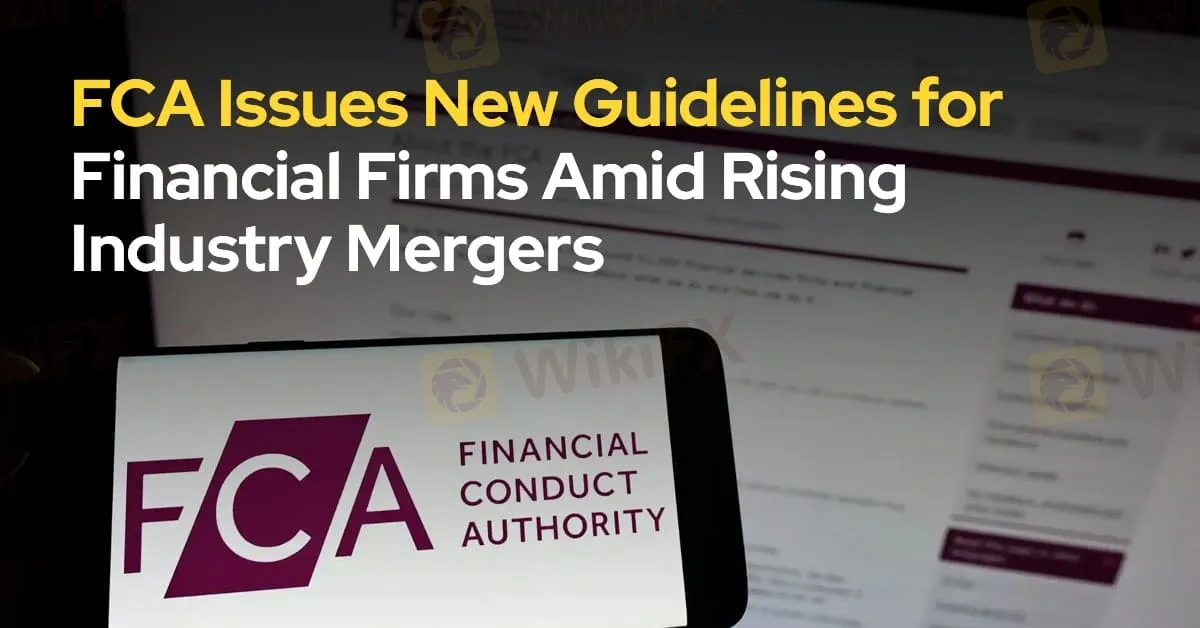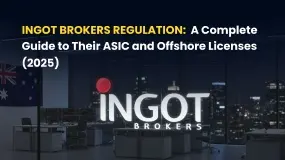简体中文
繁體中文
English
Pусский
日本語
ภาษาไทย
Tiếng Việt
Bahasa Indonesia
Español
हिन्दी
Filippiiniläinen
Français
Deutsch
Português
Türkçe
한국어
العربية
FCA Issues New Guidelines for Financial Firms Amid Rising Industry Mergers
Abstract:The UK Financial Conduct Authority (FCA) has issued a formal letter to financial advisers and investment intermediaries, detailing its regulatory expectations in light of increased industry consolidation over the past two years.

The UK Financial Conduct Authority (FCA) has issued a formal letter to financial advisers and investment intermediaries, detailing its regulatory expectations in light of increased industry consolidation over the past two years. While mergers and acquisitions within the financial sector can lead to potential benefits, the FCA emphasized the importance of ensuring that these consolidations are handled prudently, with strong governance and oversight mechanisms in place to safeguard positive outcomes for clients.
The FCA highlighted a growing trend in the acquisition of firms or their assets. It noted that while this consolidation may offer advantages, such as increased resources and market presence, there are potential risks if these transactions are not managed with adequate control. The regulator expressed concern that poorly executed acquisitions could lead to negative consequences, including financial instability, diminished client outcomes, and potential regulatory violations.

One of the key points raised by the FCA was the need for firms to notify the regulator before acquiring or increasing control over a company it regulates. Approval must be sought before any such action takes place, ensuring that the transaction meets the necessary regulatory requirements. The FCA underscored that it would rigorously assess the suitability and financial stability of both the acquirer and the target company.
In its communication, the FCA stressed that delivering positive client outcomes must be at the core of every firm's culture. To achieve this, leadership teams are expected to establish robust governance structures, oversight arrangements, and internal controls. These elements should be appropriately scaled to the firms size and complexity, especially as the company grows through acquisition. The regulator made it clear that firms need to ensure they have the resources and expertise to manage their expanding operations effectively.
The letter also outlined the importance of conducting thorough due diligence when acquiring a selling firm or its client base. Adequate financial resources must be maintained at all times to ensure stability, particularly in cases where acquisitions are funded through debt. The FCA stated that firms should have credible plans for servicing their debt obligations, backed by realistic financial projections that have been stress-tested under different scenarios. For firms classified as investment groups, full compliance with the FCA's prudential consolidation rules is mandatory.
Looking forward, the FCA plans to conduct multi-firm reviews to assess the impact of consolidation in the market. The regulator intends to examine the suitability of firms and individuals involved in acquisition activities, placing a strong emphasis on their financial soundness and governance practices.
The FCA also warned that firms completing acquisitions without obtaining prior regulatory approval could face severe consequences. In such cases, the FCA may use its enforcement powers to challenge the transaction, potentially objecting to the deal or initiating criminal proceedings. This underscores the regulators commitment to maintaining the integrity of the financial services industry and ensuring that consolidations are conducted responsibly.
By setting these expectations, the FCA aims to promote a more stable and well-governed financial sector, ensuring that firms continue to prioritize good client outcomes and operate in compliance with regulatory standards as they grow through acquisitions.

Disclaimer:
The views in this article only represent the author's personal views, and do not constitute investment advice on this platform. This platform does not guarantee the accuracy, completeness and timeliness of the information in the article, and will not be liable for any loss caused by the use of or reliance on the information in the article.
Read more

Grand Capital Doesn’t Feel GRAND for Traders with Withdrawal Denials & Long Processing Times
The trading environment does not seem that rosy for traders at Grand Capital, a Seychelles-based forex broker. Traders’ requests for withdrawals are alleged to be in the review process for months, making them frustrated and helpless. Despite meeting the guidelines, traders find it hard to withdraw funds, as suggested by their complaints online. What’s also troubling traders are long processing times concerning Grand Capital withdrawals. In this Grand Capital review segment, we have shared some complaints for you to look at. Read on!

ADSS Review: Traders Say NO to Trading B’coz of Withdrawal Blocks, Account Freeze & Trade Issues
Does ADSS give you plenty of excuses to deny you access to withdrawals? Is your withdrawal request pending for months or years? Do you witness account freezes from the United Arab Emirates-based forex broker? Do you struggle to open and close your forex positions on the ADSS app? Does the customer support service fail to respond to your trading queries? All these issues have become a rage online. In this ADSS Broker review article, we have highlighted actual trader wordings on these issues. Keep reading!

INGOT Brokers Regulation 2025: ASIC vs Offshore License - What Traders Must Know
Explore INGOT Brokers regulation in 2025: Compare their ASIC and Seychelles FSA licenses, understand trader protection levels, and learn about potential risks in this detailed guide.

INGOT Brokers Review 2025: High Risk or Hidden Gem? Expert Analysis Reveals All
Comprehensive INGOT Brokers review exploring the broker's mixed reputation in 2025. Discover the truth about regulation, trading options, and user experiences before opening an account.
WikiFX Broker
Latest News
Consob Targets Political Deepfake “Clone Sites” and Unlicensed Platforms in Latest Enforcement Round
WikiEXPO Global Expert Interviews: Gustavo Antonio Montero: ESG in Finance
2 Malaysians Arrested in $1 Million Gold Scam Impersonating Singapore Officials
Is FXPesa Regulated? Real User Reviews & Regulation Check
Fraud Mastermind Zhimin Qian Sentenced to 11 Years for $6.6 Billion Bitcoin Ponzi Scheme
Almahfaza Broker – 2025 Review: Safe or Scam?
Uniglobe Markets Review 2025: A Complete Guide to an Unregulated Broker
INZO Broker No Deposit Bonus: A 2025 Deep Dive into Its Offers and Risks
Exness Broker Expands in South Africa with Cape Town Hub
Global Guide to Finding Forex IBs/Brokers — Share Your Pick and Win Big!
Currency Calculator



